Developing IPE Utilizing Current Simulation Approaches
During this session, learners will be exposed to current terminology used in medical simulation while furthering their understanding of the different technologies used in medical simulation. Learners will also be presented with a curricular process linking simulations to accreditation standards.
The Construction of a Social Medicine Curriculum at the University of Vermont
In this session, we will review principles underlying social medicine, the collaborative student/faculty implementation of a highly interactive preclinical social medicine curriculum at the University of Vermont, discuss success and challenges encountered en route, and brainstorm about next steps in social medicine curriculum development.
Designing Outreach and Service Learning Programs to Effectively Meet the Needs of the Community, Faculty, and Medical Students
Outreach and service learning have incredible potential to provide meaningful impact to communities including the academic institution running the program. This session will highlight important considerations when developing service-learning programs including accreditation standards, community needs, and student impacts. Finally, models of service learning and outreach will be discussed, with an emphasis of education-based programs.
Towards Integrated Medical Education: Getting the best out of interdisciplinary teacher teams and leaders
In this session, original research will be presented on interdisciplinary teacher teams working on integrated medical education. These teams are composed of a combination of physicians and basic and social scientists. A general background will be provided on how integrated education is organized at Maastricht University, and why we need to work with teacher teams that have to collaborate in spite of the diverse disciplinary backgrounds. We will then present the studies that were conducted in this context, aiming to understand the way interdisciplinary teacher teams function in our context and how this is related to the perceived quality of education. Based on our results, we will present a model of interdisciplinary teacher team functioning as well as stimulating and inhibiting factors at different levels. Finally, we will present how findings from our studies were implemented in a faculty development workshop on leader identity development for interdisciplinary teacher team leaders.
Strategies for Incorporating Self-Directed Learning into Basic Sciences Education
This interactive session will begin with a brief overview of self-directed learning (SDL) in healthcare education and acknowledge some common challenges. The majority of the session will then focus on strategies that can be used in large and small group settings to promote the development of self-regulated learning skills needed for students to become self-directed. We will pay particular attention early learners and the basic science curriculum. We will close with a Q and A and consider lessons learned.
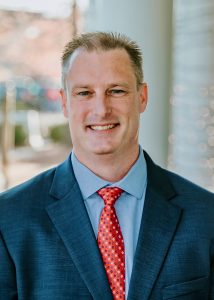 Brian G. Mann EdD, MS, PA-C is the Chief of Simulation Operations for Philadelphia College of Osteopathic Medicine. Before joining PCOM, Dr. Mann served as the Director of Simulation Education at the Jerry M. Wallace, Campbell University School of Osteopathic Medicine from 2014 – 2021, where he created and executed multiple simulation curriculums for both undergraduate and graduate medical education. Dr. Mann earned a degree in Surgical Physician Assistant studies in 2002 and completed his Doctorate of Education in Health Professions (EdD) from AT Still University in 2021. During his tenure at Campbell, Dr. Mann was invited to lecture about simulation and leadership in medicine at many national and international professional conferences.
Brian G. Mann EdD, MS, PA-C is the Chief of Simulation Operations for Philadelphia College of Osteopathic Medicine. Before joining PCOM, Dr. Mann served as the Director of Simulation Education at the Jerry M. Wallace, Campbell University School of Osteopathic Medicine from 2014 – 2021, where he created and executed multiple simulation curriculums for both undergraduate and graduate medical education. Dr. Mann earned a degree in Surgical Physician Assistant studies in 2002 and completed his Doctorate of Education in Health Professions (EdD) from AT Still University in 2021. During his tenure at Campbell, Dr. Mann was invited to lecture about simulation and leadership in medicine at many national and international professional conferences.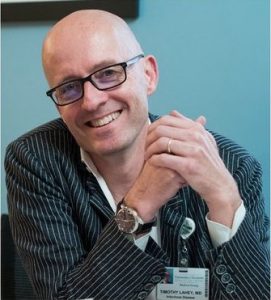 Tim Lahey, MD, MMSc is an infectious diseases physician and ethicist at the University of Vermont Medical Center and professor of medicine at the University of Vermont’s Larner College of Medicine. After studying HIV immunology and translational immunology for a tuberculosis vaccine trial in Tanzania, Tim led multiple medical school and undergraduate courses and oversaw the second-year curriculum at Dartmouth’s Geisel School of Medicine as well as oversaw the creation of a new online Master of Public Health program at The Dartmouth Institute for Health Policy and Clinical Practice. Beyond co-leading chapters of the Albert Schweitzer Fellowship at two medical schools and serving as faculty advisor to the Social Justice Coalition at Larner, Tim has served on multiple USMLE committees, has over 50 peer-reviewed publications and writes regularly for popular outlets like The New York Times, STAT, the Atlantic, and beyond.
Tim Lahey, MD, MMSc is an infectious diseases physician and ethicist at the University of Vermont Medical Center and professor of medicine at the University of Vermont’s Larner College of Medicine. After studying HIV immunology and translational immunology for a tuberculosis vaccine trial in Tanzania, Tim led multiple medical school and undergraduate courses and oversaw the second-year curriculum at Dartmouth’s Geisel School of Medicine as well as oversaw the creation of a new online Master of Public Health program at The Dartmouth Institute for Health Policy and Clinical Practice. Beyond co-leading chapters of the Albert Schweitzer Fellowship at two medical schools and serving as faculty advisor to the Social Justice Coalition at Larner, Tim has served on multiple USMLE committees, has over 50 peer-reviewed publications and writes regularly for popular outlets like The New York Times, STAT, the Atlantic, and beyond.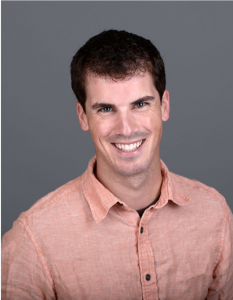 Peter Vollbrecht, PhD is currently an Assistant Professor of Biomedical Sciences at Western Michigan University Homer Stryker M.D. School of Medicine (WMed) in Kalamazoo, MI where he directs the Nervous System course and Neuroanatomy laboratory for first year medical students. He also serves as the discipline director for Explorations, a self-directed learning component of the curriculum. Finally, Dr. Vollbrecht has developed an outreach program called Brain Explorers at WMed, which focuses on improving science attitudes in middle school students that are typically underserved and underrepresented in science. Dr. Vollbrecht has wide ranging research interests ranging from medical education and science outreach to the effects of obesity on glial cells of the nucleus accumbens and prefrontal cortex. Before starting at WMed Dr. Vollbrecht taught at his alma mater, Hope College in Holland, MI. Dr. Vollbrecht received his B.S. in Chemistry from Hope College and his PhD in Cellular and Molecular Neuroscience from Vanderbilt University in Nashville, TN. Before beginning his career as a professor Dr. Vollbrecht was a postdoctoral fellow in the department of Pharmacology at the University of Michigan in Ann Arbor, MI.
Peter Vollbrecht, PhD is currently an Assistant Professor of Biomedical Sciences at Western Michigan University Homer Stryker M.D. School of Medicine (WMed) in Kalamazoo, MI where he directs the Nervous System course and Neuroanatomy laboratory for first year medical students. He also serves as the discipline director for Explorations, a self-directed learning component of the curriculum. Finally, Dr. Vollbrecht has developed an outreach program called Brain Explorers at WMed, which focuses on improving science attitudes in middle school students that are typically underserved and underrepresented in science. Dr. Vollbrecht has wide ranging research interests ranging from medical education and science outreach to the effects of obesity on glial cells of the nucleus accumbens and prefrontal cortex. Before starting at WMed Dr. Vollbrecht taught at his alma mater, Hope College in Holland, MI. Dr. Vollbrecht received his B.S. in Chemistry from Hope College and his PhD in Cellular and Molecular Neuroscience from Vanderbilt University in Nashville, TN. Before beginning his career as a professor Dr. Vollbrecht was a postdoctoral fellow in the department of Pharmacology at the University of Michigan in Ann Arbor, MI.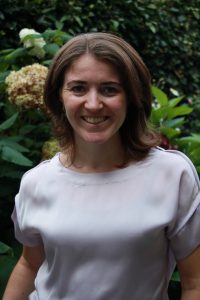 Stephanie Meeuwissen, MD, PhD, is currently working as resident Internal Medicine at the Maastricht University Medical Centre (MUMC+), the Netherlands. She is passionate about workplace learning of health professionals, especially regarding coaching, teamwork and leadership skills. She recently obtained her PhD after defending her thesis on ‘Team learning at work: getting the best out of interdisciplinary teacher teams and leaders’. In her research, she takes a multidisciplinary approach, using knowledge from management sciences, educational sciences and health care, and conducts mainly qualitative methods (e.g. interviews, focus groups, observations, document analysis, ethnography). She co-developed a leadership profile in the Master of Health Professions Education curriculum renewal at Maastricht University, and a leadership development programme for course coordinators at the same university.
Stephanie Meeuwissen, MD, PhD, is currently working as resident Internal Medicine at the Maastricht University Medical Centre (MUMC+), the Netherlands. She is passionate about workplace learning of health professionals, especially regarding coaching, teamwork and leadership skills. She recently obtained her PhD after defending her thesis on ‘Team learning at work: getting the best out of interdisciplinary teacher teams and leaders’. In her research, she takes a multidisciplinary approach, using knowledge from management sciences, educational sciences and health care, and conducts mainly qualitative methods (e.g. interviews, focus groups, observations, document analysis, ethnography). She co-developed a leadership profile in the Master of Health Professions Education curriculum renewal at Maastricht University, and a leadership development programme for course coordinators at the same university.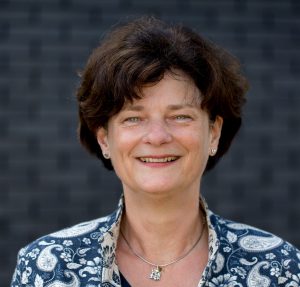 Mirjam oude Egbrink, PhD MHPE, studied Biology at the University of Groningen and completed the master of Health Professions Education at Maastricht University. She received her PhD in cardiovascular research from Maastricht University. Throughout her career, Mirjam oude Egbrink contributed significantly to the development and coordination of (new) educational units for the medical curriculum, and to the development of a new Physician-Clinical Investigator research master. In the Faculty of Health, Medicine and Life Sciences, she was appointed Director of Education for Medicine in 2008, Scientific Director of the Institute for Education in 2011, and Vice Dean Education in 2020. In 2012, she became full professor on Implementation of Educational Innovations. In the Research School for Health Professions Education (SHE), she is involved in research on education, with a special interest in organizational quality culture and management.
Mirjam oude Egbrink, PhD MHPE, studied Biology at the University of Groningen and completed the master of Health Professions Education at Maastricht University. She received her PhD in cardiovascular research from Maastricht University. Throughout her career, Mirjam oude Egbrink contributed significantly to the development and coordination of (new) educational units for the medical curriculum, and to the development of a new Physician-Clinical Investigator research master. In the Faculty of Health, Medicine and Life Sciences, she was appointed Director of Education for Medicine in 2008, Scientific Director of the Institute for Education in 2011, and Vice Dean Education in 2020. In 2012, she became full professor on Implementation of Educational Innovations. In the Research School for Health Professions Education (SHE), she is involved in research on education, with a special interest in organizational quality culture and management.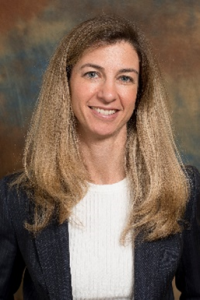 Dr. Samara Ginzburg is the Senior Associate Dean for Education at the Zucker School of Medicine at Hofstra/Northwell. Dr. Ginzburg is a founding member of the leadership team that established this young school of medicine. During the past eleven years, she focused on creating a culture of active learning for the undergraduate medical education program, integral to the Zucker School of Medicine’s mission to mold future physicians into lifelong, self-directed learners. She led the team that pioneered the development and implementation of a hybrid case/problem-based learning program, PEARLS (Patient-centered Explorations in Active Reasoning, Learning and Synthesis), which received the Association of American Medical Colleges, NEGEA Innovation in Medical Education Award. She continues to propel medical education forward, working with UME faculty leadership in operating an educational program that closely integrates basic, clinical and social sciences to train learners capable of putting knowledge into action with the goal of achieving effective outcomes to improve the health of patients. Dr. Ginzburg received her Medical Degree from the Mount Sinai School of Medicine. She completed a Residency and Chief Residency in Internal Medicine, followed by a fellowship in Endocrinology, Diabetes and Metabolism at Mount Sinai Hospital.
Dr. Samara Ginzburg is the Senior Associate Dean for Education at the Zucker School of Medicine at Hofstra/Northwell. Dr. Ginzburg is a founding member of the leadership team that established this young school of medicine. During the past eleven years, she focused on creating a culture of active learning for the undergraduate medical education program, integral to the Zucker School of Medicine’s mission to mold future physicians into lifelong, self-directed learners. She led the team that pioneered the development and implementation of a hybrid case/problem-based learning program, PEARLS (Patient-centered Explorations in Active Reasoning, Learning and Synthesis), which received the Association of American Medical Colleges, NEGEA Innovation in Medical Education Award. She continues to propel medical education forward, working with UME faculty leadership in operating an educational program that closely integrates basic, clinical and social sciences to train learners capable of putting knowledge into action with the goal of achieving effective outcomes to improve the health of patients. Dr. Ginzburg received her Medical Degree from the Mount Sinai School of Medicine. She completed a Residency and Chief Residency in Internal Medicine, followed by a fellowship in Endocrinology, Diabetes and Metabolism at Mount Sinai Hospital.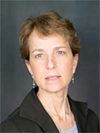 Dr. Willey earned her BA at the University of Pennsylvania and PhD at the Massachusetts Institute of Technology. She was involved in the planning and design of the Donald and Barbara Zucker School of Medicine at Hofstra/Northwell. In September of 2014, she assumed the position of Chair of the Department of Science Education and in 2017, was honored as the Leo A. Guthart Professor of Biomedical Science. In addition to her role as Department Chair, Dr. Willey also serves as course director for Human-Microbe Interactions, taken by all second-year medical students.
Dr. Willey earned her BA at the University of Pennsylvania and PhD at the Massachusetts Institute of Technology. She was involved in the planning and design of the Donald and Barbara Zucker School of Medicine at Hofstra/Northwell. In September of 2014, she assumed the position of Chair of the Department of Science Education and in 2017, was honored as the Leo A. Guthart Professor of Biomedical Science. In addition to her role as Department Chair, Dr. Willey also serves as course director for Human-Microbe Interactions, taken by all second-year medical students.